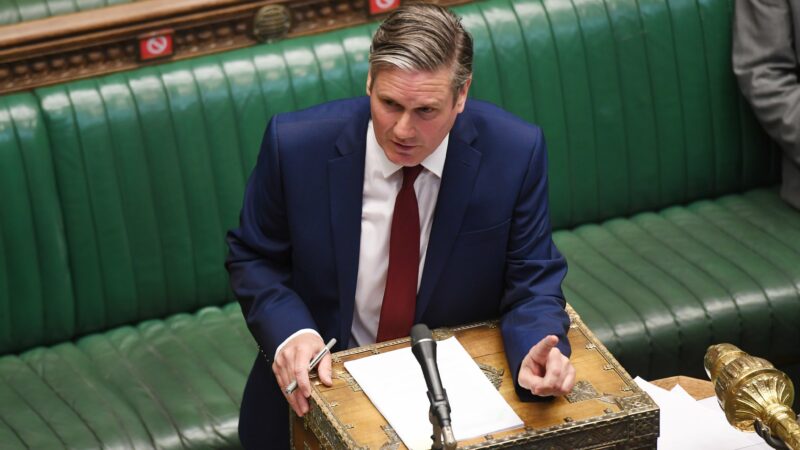
Labour needs a “major overhaul” of its “political strategy, organisation and campaigning infrastructure” to win again, according to the Labour Together 2019 general election review.
LabourList – which jointly commissioned the review – can now reveal details of the 140-page report that brought together views from across the movement to assess last year’s result and campaign.
The project commissioners included MPs Ed Miliband, Shabana Mahmood, Lucy Powell, plus journalist Ellie Mae O’Hagan, TSSA’s Manuel Cortes and former John McDonnell aide James Meadway.
Noting that Labour lost “types of voters everywhere compared with 2017, except in London”, the review declares that the party “must change how we campaign and reset our relationship with the public”.
Its findings are based on evidence and analysis from YouGov, Datapraxis, the British Election Study, submissions from groups such as Momentum and Progress, 50 interviews and 11,000 survey responses.
The report notes that Labour “lost support on all sides” in 2019 – around 1.7 million Leave voters and around one million Remain voters in net terms, compared to 2017 – and failed to attract swing voters.
Labour lost roughly equal numbers of Remain (1.9 million) and Leave (1.8 million) voters between 2017 and 2019. But it also gained around 900,000 Remain voters, while only winning over around 100,000 Leave voters.
Although one of Labour’s aims under Jeremy Corbyn was to attract non-voters, it was also identified that the Conservatives were more successful than Labour in turning out non-voters in 2019.
The review says the “terrible defeat” experienced by the party last year should be “mobilising, not paralysing” – but also warns that the scale of the challenge cannot be underestimated.
“To win a majority of one, we would need to increase our number of MPs by 60% up by 123 seats – something no major party has ever done,” the report states. A swing of over 10% would be needed to win in 2024.
It says the “broad consensus” across the party, reflected in the survey results, is that concerns over the leadership, Brexit position and deliverability of the manifesto damaged Labour’s chances.
But observing that the surprising 2017 result “masked” the foreshadowing of Labour’s 2019 defeat, the review concludes that the roots of the loss “stretch back over the last two decades”.
It advises the party now led by Keir Starmer not to be complacent about seats it currently holds, as many were retained with slim majorities and there are high levels of switching and tactical voting among them.
In chapters exploring Labour’s 2019 campaign, the review finds that the party was “unprepared for an election, with no clear message” and its media strategy “meant policies didn’t have time to land”.
Labour lost the online campaign, according to the report, while the Tory approach – making use of proxies, online forums and Facebook groups – lent itself well to organic shares and “distributed spin”.
The review comes out strongly in favour of community organising, though says it needs to be “integrated”, as well as opening up local parties and engaging more with volunteer networks.
“We need to make community organising central to what we do as a party and modernise our approach to doorstep canvassing by putting relationship-building at its heart,” it recommends.
It stresses that an overhaul of Labour’s digital tools is essential, saying: “Labour needs to invest in and upgrade its technological infrastructure and capacities and should adapt its working culture and structures to match.”
Work has also been done to identify a political strategy that could build a broad enough coalition of voters, offering a “big change economic agenda” and a “robust story of community and national pride”.
Commenting on the review, commissioner Ed Miliband said: “This report is not a counsel of gloom and despair for our party but a call for realism about the situation we face, a determination to learn lessons and change things.
“It is not a call either for minimalist politics. The next election will be a change election and Labour must be the agents of that change… We on this commission all believe in this transformative politics.”
Lucy Powell, also now a Labour frontbencher, added: “We shouldn’t make the mistake, which we often do, of thinking that having a new leader and Brexit being resolved will automatically change our electoral fortunes.
“Our disconnect goes further back and is deeper than that. This report provides an opportunity to build shared understanding and common objectives and to put infighting behind us.”
Commenting on the publication of the review tonight, a Labour Party spokesperson said: “We thank everyone who contributed to this independent report.
“Its attempt to understand the challenges and opportunities facing the Labour party is welcome and we will read it carefully. By harnessing our collective skills and energy we will build a party and a movement that wins again.”
The full report will be published at 6am on Friday at electionreview.labourtogether.uk.




More from LabourList
‘Turning public services around: Haringey’s story of child protection’
‘Can Labour turn the green tide back to red?’
Tom Belger column: ‘Why is Labour making migrant exploitation easier?’